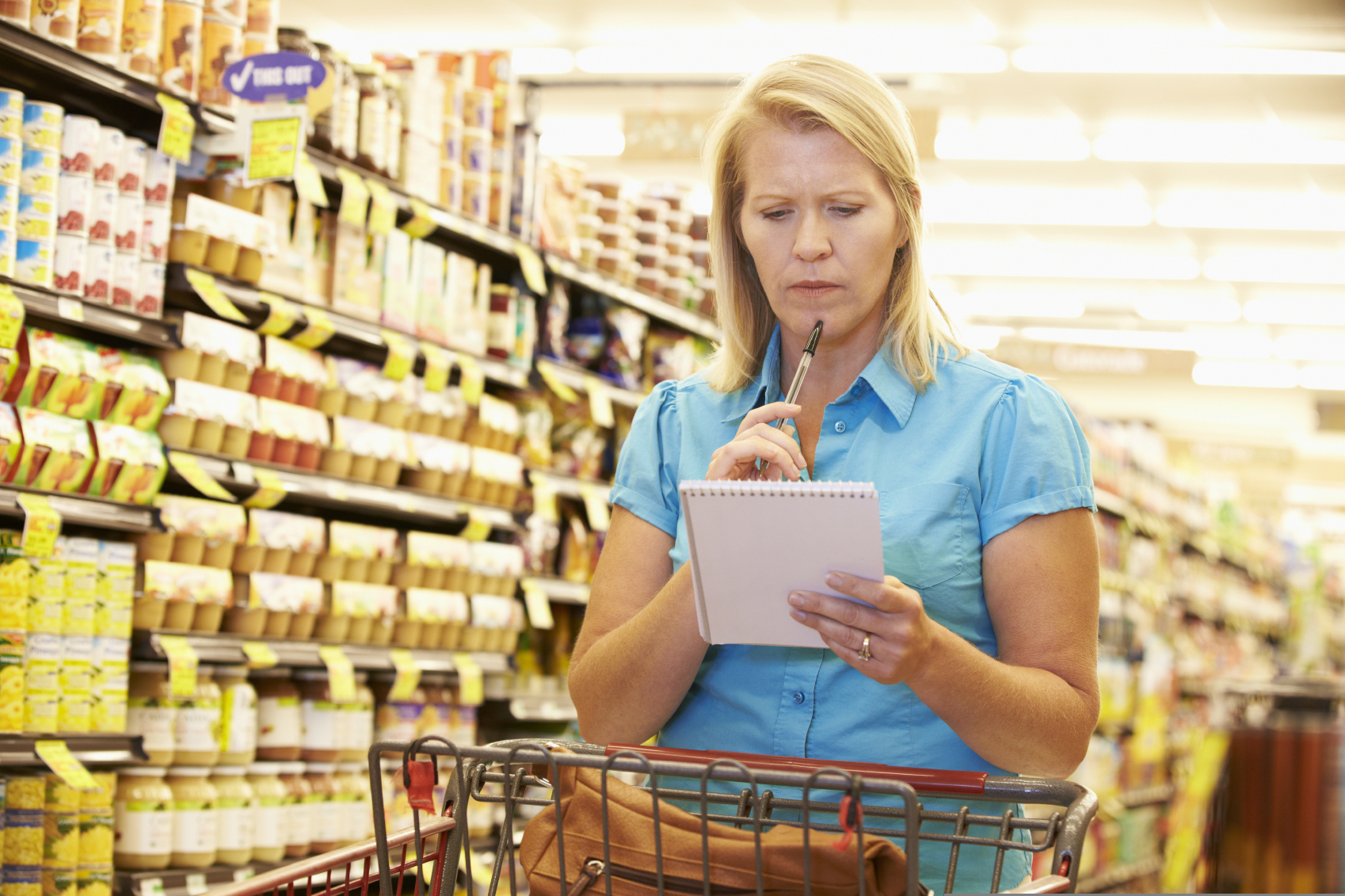
The Money Advice Service (MAS) found that three-quarters (76%) of people regularly spend more than they meant to in the supermarket due to special offers and bogof – or buy one get one free – multi-buy deals.
On average, people said they spend £11.14 more than they intended to per shop. As the average shopper visits the supermarket more than twice (2.2 times) a week, the Service calculated that this could lead someone to spend around £1,274 per year more than intended.
The Service also asked more than 2,000 consumers to select the cheapest options when presented with four sets of offers as they might be found in a supermarket.
Just one in 50 (2%) people selected the best-value option from all four sets of offers. Three quarters (74%) of people answered at least one question correctly.
Hunger, boredom and children’s “pester power” were also common reasons people gave for piling more into their trolley than they had intended.
Six in 10 (59%) people said shopping on an empty stomach makes them spend more. In this scenario, women were more likely to stock up on chocolate, sweets and pastries, while hungry men were more susceptible to buying meat and alcohol.
One in three (31%) people spend more when they are bored in the supermarket, while one in four (26%) said pressure from children makes them stuff their trolley with extra purchases.
The research also found that people who made a shopping list, and stuck to it while in the supermarket, typically spent £200 a year less than those who rarely or never made a list.
Those who stuck to a shopping list spent £6,374 per year on average in the supermarket – £217 less than the £6,591 typically spent a year by those who do not bother making a list.
The MAS is an independent body set up by Government to offer money tips.
John Penberthy-Smith, customer director for the MAS, said: “The problem is that quite often we see a special offer at the supermarket and we don’t want to miss out – so we throw it into our trolley without really thinking about whether it is a good deal or whether we actually need it.
“Often deals can be difficult to understand and compare with other prices. Then there’s waste – even if the offers are cheaper, bigger packets or 50% extra are not always good value for money if we end up chucking most of it away.
“The best thing to do if you want to save cash is to write a shopping list and try to stick to it. You can also try shopping when you’ve just eaten and you’re not tired.”
Here are the percentages of shoppers who say they spend more due to certain circumstances, and the average amount extra they say they spend on a shop because of these circumstances:
- Special offers, 76%, £11.14
- Hunger, 59%, £10.87
- Not having a clear idea/plan of what they want to buy beforehand, 49%, £13.44
- End of aisle displays, 45%, £11.91
- Boredom, 31%, £14.53
- Children/pester power, 26%, £15.50
- Till displays, 23%, £16.28
- Tiredness, 22%, £13.94
Can you spot the best deal?
The Money Advice Service (MAS) asked more than 2,000 people to select the best-value options when presented with four sets off offers.
Just 2% correctly identified the best-value deals in all four cases.
See how you get on….
Of the following options for milk, which represents the best deal?
- Six pints of milk for £1.80
- Four pints of milk for £1.40
- Two four-pint cartons of milk on offer for £2
- Two six-pint cartons of milk on offer for £3.50
Of the following options for buying 500g of lemons, which represents the best deal?
- One 500g pack of lemons costing £1.20
- 500g of loose lemons at £2.50 per kilo
- Buy two get the third free deal on 200g packs of lemons costing 70p each
- Buy one get one half-price deal on 250g packs of lemons costing 70p each
Of the following options for buying tomato ketchup, which represents the best deal?
- One 460g bottle on offer at £1.50
- One 910g bottle costing £2.49
- Buy one get one half-price deal on 700g bottles costing £2.29 each
- One 1.35kg bottle costing £3.50
Of the following options for buying eggs, which represents the best deal?
- Six medium eggs for £1.10
- Ten medium eggs on offer for £1.50
- Fifteen medium eggs for £2.10
- Two packs of six medium eggs on offer for £2.00
- Buy one get one free offer on packs of 10 medium eggs priced at £2.20
The answers…
Milk – number 3
Lemons – number 4
Tomato Ketchup – number 3
Eggs – number 5

Enjoy the convenience of having The Sunday Post delivered as a digital ePaper straight to your smartphone, tablet or computer.
Subscribe for only £5.49 a month and enjoy all the benefits of the printed paper as a digital replica.
Subscribe